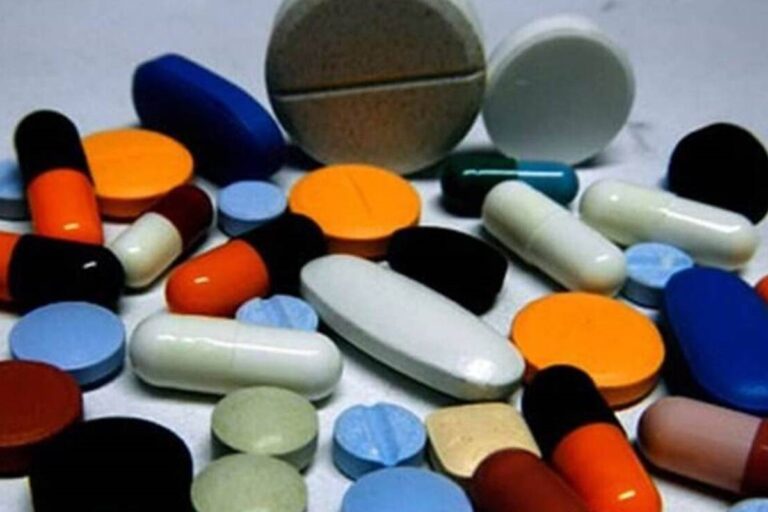
By Dr. Anil Bansal,
The Indian pharmaceutical industry is on a growth trajectory – being the third largest in terms of volume and the thirteenth largest in terms of value. The pharma sector has registered unprecedented growth in the past decades fuelled by high burden of diseases, higher disposable income, healthcare infrastructure, etc. This growth, led by innovations that lead to discovery of new life-saving drugs, will continue organically and inorganically through alliances, joint ventures, and mergers, and acquisitions and must be protected through intellectual property rights (IPRs).
In India, the IP reform under Trade-related Aspects of Intellectual Property Rights (TRIPS) have encouraged biopharmaceutical innovation and has had a significant impact on the capability and willingness of the biopharmaceutical firms to invest. It was witnessed that TRIPS compliance has spurred innovation by domestic companies in the form of increased patenting activity and Research and Development (R&D) expenditure.
Challenges faced by pharma companies
Patents provide pharma companies exclusive rights to market drugs and prevent others from manufacturing, selling, and making these drugs for a period of 20 years. IPR is a prerequisite for pharma companies for identification, planning, commercialization, and protection of invention. It is also an important tool to protect investment, time, and effort and encourage healthy competition thus promoting industrial development and economic growth. In the current environment, though, there are various challenges faced by the Indian pharmaceutical industry
Some major challenges are:
High out-of-pocket expenditure: It limits the access to medicines. A high percentage of the out-of-pocket expenditure on healthcare can be ascribed to the purchase of drugs. The high price of patented drugs poses a hurdle to universal access to healthcare.
Pricing of patented drugs: To improve access of patented medicines for the public, the government should have a robust procurement plan at a well-negotiated price and supply these through government hospitals and dispensaries.
Counterfeit medicines: Fake versions of high value and/or high-volume brands of the pharmaceutical companies in India are adversely affecting their business performance. Apart from taking income from consumers and drug companies, falsified drugs also pose health hazards to patients.
Government’s contribution
In November 2021, Prime Minister Mr. Narendra Modi inaugurated the first Global Innovation Summit of the pharmaceutical sector. The summit will have 12 sessions, wherein national and international speakers will deliberate on a range of subjects, including regulatory environment, funding for innovation, industry-academia collaboration, and innovation infrastructure.
To achieve self-reliance and minimise the country’s import dependency for essential bulk drugs, the Department of Pharmaceuticals had initiated the PLI Scheme to promote domestic manufacturing by setting up greenfield plants with minimum domestic value addition in four separates ‘Target Segments’ with a cumulative outlay of Rs. 6,940 crore (US$ 951.27 million) from FY21 to FY30.
In June 2021, Finance Minister Ms. Nirmala Sitharaman announced an additional outlay of Rs. 197,000 crore (USD 26,578.3 million) that will be utilised over five years for the Production Linked Incentive (PLI) Scheme in 13 key sectors such as domestic production of active pharmaceutical ingredients (APIs), drug intermediaries and key starting materials.
On March 29, Union Health and Chemical and Fertilisers Minister Mansukh Mandaviya announced that of the 53 drug raw materials for which India was dependent on imports, 35 are now being manufactured in India under the PLI Scheme.
Strong IP laws is the panacea
The constant increase in the size of the Indian pharmaceutical market due to changing lifestyle and high demand for quality healthcare makes this sector as one of the promising contributors to the Indian economy.
Strong IPRs will induce companies to introduce more advanced products, spur innovation globally and foster more rapid economic growth. The regulatory policies need to be improved, especially for patents and price control, to boost the growth and project India as the destination for the new generation pharmaceutical market.
With strong IP laws, the chances of counterfeit drugs reaching the market are considerably lower as these laws provide greater means of tracking the supply chain through trademarks, trade secrets, and licensing agreements. This allows greater quality control and helps manufacturers retain public confidence in their products. Also, firms marketing patented products earn high margins that enables them to plough back more resources into R&D and come up with more useful discoveries.
Stronger IP laws will ensure high-quality generic medicines at affordable prices and provide growth opportunities to India’s internal talent on domestic as well as global level. IPRs maintain environments capable of producing innovative outputs and transform country’s economy using technology.
(The author is Former Senior Joint Secretary, Indian Medical Association (IMA) (National), Former Chairman Anti Quackery cell, Delhi Medical Council & Former President, Delhi Medical Association. Views expressed are personal and do not reflect the official position or policy of the FinancialExpress.com.)